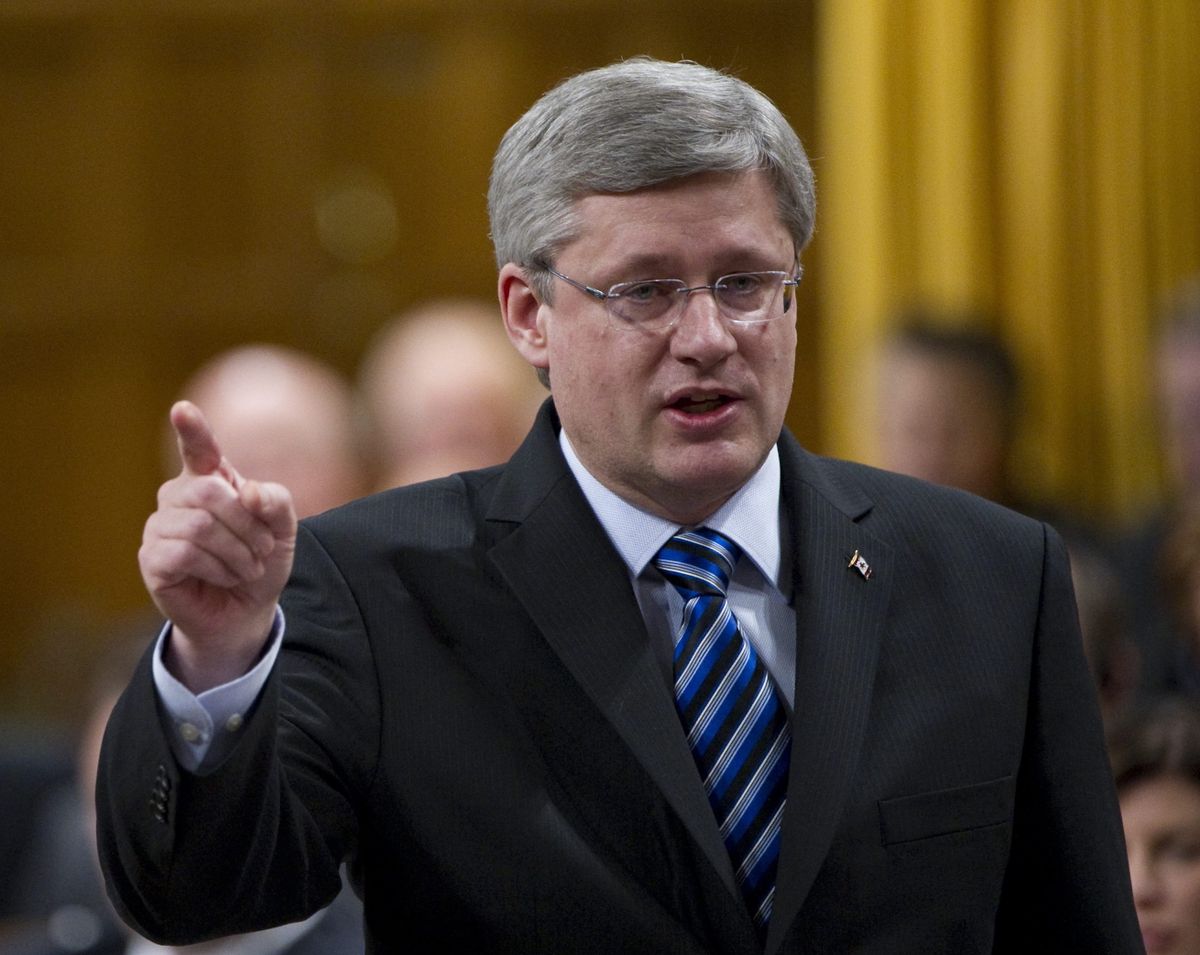Tax cut causing rift in Canada
Corporate break could force election

TORONTO – Canadian politics are heating up in language familiar to the neighbors down south: tax cuts, jobs, the deficit, corporate enrichment and struggling families.
The opposition is threatening to vote Prime Minister Stephen Harper out of office next month over his latest planned cut in corporate taxes. That would force a general election which Harper is widely expected to win, while once again falling short of a majority in Parliament and unable to pass major legislation without opposition support.
Harper is adamant he won’t repeal the cut in the federal corporate rate from 16.5 percent to 15 percent and complete the phased reduction he began in 2007 when the rate was 19 percent.
But he must tread carefully. To soften the image of rewarding big business, his Conservative Party is calling it a “job-creating low tax plan,” minus the word “corporate.”
The opposition Liberals also have to overcome a problem. They allowed Harper’s tax plan to take effect by simply not attending the vote on it in 2007. Now they are saying things have changed, the world has experienced a financial crisis, and a tax cut that seemed acceptable three years ago doesn’t fit with today’s $56 billion deficit.
Harper might still get his budget passed without Liberal support if he secures the votes of one or another smaller party, in which case no election will be needed. But that is looking even less likely following a nonbinding vote in Parliament on Wednesday calling on the government to roll back the corporate tax rate to 18 percent.
Meanwhile, political ads have begun blitzing TV viewers, and legislators are hitting the road to talk up their parties. Harper is counting on Canadians to reward him for getting them through the financial crisis in surprisingly good shape, with banks intact, unemployment held at 7.8 percent and 2010 growth projected at about 3 percent.
The Liberals are hammering him over the deficit, and for planning to spend $9 billion on 65 American-made F-35 Joint Strike Fighters – one of the biggest military purchases in Canadian history – plus at least $5 billion more in maintenance costs.
Also, they’re hoping public opinion shares their distaste for a corporate tax cut at a time of less than full employment.
“The government is pressing ahead with corporate tax cuts that Canadians don’t support and the country can’t afford,” Liberal leader Michael Ignatieff charged Wednesday in Parliament.
“We are not going to raise taxes on employers in the middle of a recovery,” Harper replied.
Jim Standford, an economist with the Canadian Auto Workers Union, said the Liberals have made the tax cut their line in the sand.
The average Canadian “sees the government taking billions, and it’s very tough times, and a big deficit, and giving it to some of the wealthiest corporations in the land, banks and oil companies, that already make billions of dollars – that just does not sit well,” he said.
But Jack Mintz, a tax expert who heads the University of Calgary’s School of Public Policy, said Canadians have “been pretty supportive” of recent corporate tax cuts. “It will be interesting to see if there will be a change in the psychology of Canadians and whether Canadians will even care that much about the issue, so it may not be a great issue to fight an election over,” he said.
Mintz released a report that estimates the federal corporate tax cut from 16.5 percent to 15 percent will generate about $30 billion more in investment and 100,000 jobs in the long run. He said that counting provincial and other levies, in 2000 Canada had the highest corporate tax rates among the 30-plus countries of the Organization for Economic Co-operation and Development, but will fall to the middle rank if the final cut goes through.
An election would offer the first opportunity to witness a faceoff between Harper and Ignatieff since the latter took over the Liberal Party in December 2008.
Ignatieff, 63, is one of Canada’s leading public intellectuals – an author, historian and TV panel regular before going into politics.
Harper, 51, is a policy wonk, dry in public but given to snatches of humor, such as saying he became an economist because he lacked the sparkle to be an accountant like his father. Yet he has managed to do what many would have thought impossible: govern from the right in an instinctively liberal country during two elections and five years in office, without ever holding a parliamentary majority.